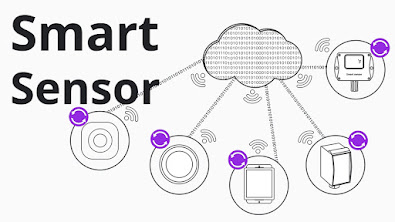Ethics
- Get link
- X
- Other Apps
- ethical guidelines are a set of principles or rules that help individuals or organizations make decisions in a morally responsible and fair manner. They serve as a roadmap for behavior and decision-making, helping to ensure that people act in accordance with their values and obligations. Some common ethical guidelines include:
- Honesty: Being truthful and transparent in all dealings and interactions.
- Respect: Treating others with dignity and courtesy, regardless of their background or beliefs.
- Responsibility: Being accountable for one's actions and decisions and taking ownership of the consequences that arise from them.
- Fairness: Treating others equally and without bias and avoiding any actions that would be seen as discriminatory or unjust.
- Confidentiality: Protecting sensitive information and respecting the privacy of others.
- Professionalism: Maintaining high standards of competence, skill, and integrity in one's work.
- Sustainability: Ensuring that actions and decisions consider their impact on the environment and future generations.
- These ethical guidelines can be found in many different settings, including businesses, professions, and organizations, and they help to promote integrity, trust, and social responsibility.
- Do not cause harm - As stated in the first principle of the IEEE Code of Ethics for Engineers, individuals should not participate in or knowingly allow the use of technology that causes harm to individuals or the environment.
- Respect privacy - The Universal Declaration of Human Rights (UDHR) and the European Union's General Data Protection Regulation (GDPR) both recognize the right to privacy as a fundamental human right.
- Use technology for the greater good - The ACM Code of Ethics and Professional Conduct states that individuals should use technology to promote the general welfare of society and its members.
- Be transparent - The IEEE Code of Ethics for Engineers emphasizes the importance of transparency in the development and use of technology.
- Uphold fairness - The IEEE Code of Ethics for Engineers states that individuals should avoid discrimination and promote fairness in the use of technology.
- Avoid creating or perpetuating inequality - The ACM Code of Ethics and Professional Conduct states that individuals should strive to avoid creating or perpetuating inequality through their work.
- Respect intellectual property rights - The World Intellectual Property Organization (WIPO) recognizes the importance of protecting the rights of creators and innovators.
- Promote digital literacy and educate others - The ACM Code of Ethics and Professional Conduct stresses the importance of education and digital literacy as a means of promoting responsible technology use.
- Be accountable for your actions - The IEEE Code of Ethics for Engineers requires individuals to be accountable for their work and to accept responsibility for the impact of their technology choices.
- Continuously reflect on and improve your ethical standards - The ACM Code of Ethics and Professional Conduct encourages individuals to continuously reflect on and improve their ethical standards as they engage with new technologies and ethical challenges.
Autonomy
I can work under a routine direction and Uses limited discretion in resolving issues or inquiries using the knowledge I gain in ethics. I can determine when to seek guidance in unexpected situations. and I can plan my own work within short time horizons.
Influence
I can interact with and may influence immediate classmates. I am aware of the need to collaborate with my classmates.
Complexity
I can Perform a range of work activities in varied environments. hence I May contribute to routine issue resolution and apply creative thinking or suggest new ways to approach a task.
Business skills
Understands and use appropriate methods, tools, applications, and processes of the ethics
I have been able to develop sufficient digital skills for their role.
Knowledge
With future systems, I have gained basic domain knowledge. Demonstrates application of essential generic knowledge typically found in industry bodies of knowledge. Absorbs new information when it is presented systematically and applied effectively.
References
https://www.google.com/search?q=technology+is+evolving+fast+can+our+ethics+keep+up&tbm=isch&ved=2ahUKEwjNgaTzl4T-AhWDrycCHZnmCz4Q2-cCegQIA
- Get link
- X
- Other Apps


Comments
Post a Comment